Intro
The complete blood count (CBC) test is a fundamental diagnostic tool used in medical settings to assess various components of the blood. It provides valuable information about the overall health of an individual, helping healthcare professionals to diagnose and monitor a wide range of conditions. The importance of the CBC test lies in its ability to detect abnormalities in the blood, which can be indicative of underlying health issues. Understanding what a CBC test is and what it measures is crucial for appreciating its significance in healthcare.
A CBC test is a routine blood test that measures different parts of the blood, including red blood cells, white blood cells, platelets, and hemoglobin. Each of these components plays a vital role in maintaining the body's overall health. Red blood cells are responsible for carrying oxygen throughout the body, while white blood cells are an essential part of the immune system, fighting off infections. Platelets are crucial for blood clotting, preventing excessive bleeding when an injury occurs. The hemoglobin level in the blood is also an important indicator of health, as it reflects the body's ability to transport oxygen to tissues and organs.
The CBC test is a versatile diagnostic tool, offering insights into various aspects of health. It can help identify conditions such as anemia, infections, and blood clotting disorders, among others. The test's ability to detect abnormalities in the blood makes it an indispensable asset for healthcare professionals. By analyzing the results of a CBC test, doctors can gain a better understanding of a patient's condition, which in turn helps in making informed decisions about the appropriate course of treatment. The test's applications are diverse, ranging from routine health check-ups to monitoring patients with chronic conditions.
Introduction to CBC Test Components
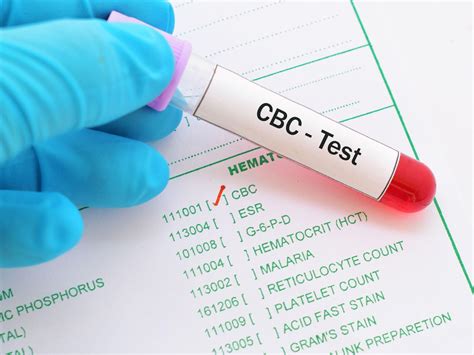
The CBC test measures several key components of the blood, each providing unique information about the body's health. These components include red blood cell count, white blood cell count, platelet count, and hemoglobin level. Understanding what each of these components represents is essential for interpreting CBC test results. The red blood cell count, for instance, can indicate the presence of anemia or other conditions affecting red blood cells. Similarly, an abnormal white blood cell count can signal an infection or a disorder affecting the immune system.
Understanding Red Blood Cell Count
The red blood cell count is a critical parameter measured in a CBC test. It reflects the number of red blood cells in the blood, which is essential for carrying oxygen to different parts of the body. A low red blood cell count can indicate anemia, a condition characterized by a deficiency of red blood cells or hemoglobin in the blood. Anemia can lead to symptoms such as fatigue, weakness, and shortness of breath. On the other hand, a high red blood cell count can be associated with conditions such as polycythemia vera, a rare blood disorder where the bone marrow produces too many red blood cells.White Blood Cell Count and Its Significance
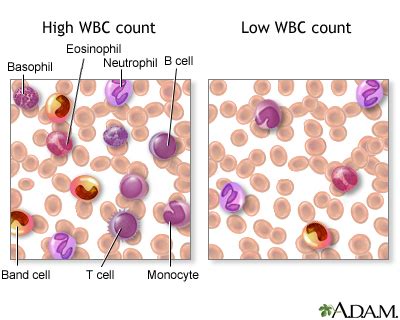
The white blood cell count is another vital component of the CBC test. White blood cells are a crucial part of the immune system, responsible for fighting off infections and diseases. An abnormal white blood cell count can indicate the presence of an infection, inflammatory disorder, or immune system disease. For example, a high white blood cell count can be seen in conditions such as leukemia, a type of blood cancer that affects the bone marrow and the white blood cells. A low white blood cell count, on the other hand, can increase the risk of infections, as the body's ability to fight off pathogens is compromised.
Platelet Count and Blood Clotting
The platelet count is also an essential parameter measured in a CBC test. Platelets are small blood cells that play a crucial role in blood clotting. They help to form clots to stop bleeding when a blood vessel is injured. A low platelet count, also known as thrombocytopenia, can increase the risk of bleeding and bruising. This condition can be caused by various factors, including certain medications, liver disease, and bone marrow disorders. A high platelet count, known as thrombocytosis, can also be a cause for concern, as it can increase the risk of blood clots.Hemoglobin Level and Oxygen Transport
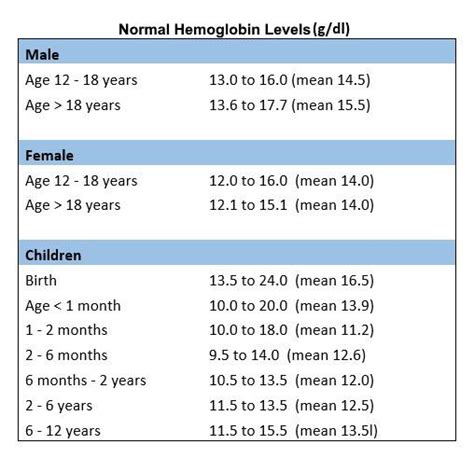
The hemoglobin level is a critical component of the CBC test, reflecting the amount of hemoglobin in the blood. Hemoglobin is a protein in red blood cells that carries oxygen from the lungs to the rest of the body. A low hemoglobin level can indicate anemia, leading to symptoms such as fatigue, weakness, and shortness of breath. The hemoglobin level can also be affected by other factors, including nutritional deficiencies, chronic diseases, and certain genetic disorders.
Interpreting CBC Test Results
Interpreting CBC test results requires a comprehensive understanding of the different components measured in the test. Each component provides valuable information about the body's health, and abnormalities can indicate the presence of underlying conditions. For instance, a CBC test can help diagnose conditions such as anemia, infections, and blood clotting disorders. It can also be used to monitor patients with chronic conditions, such as leukemia or HIV/AIDS, to assess the effectiveness of treatment and make adjustments as necessary.Applications of CBC Test in Healthcare
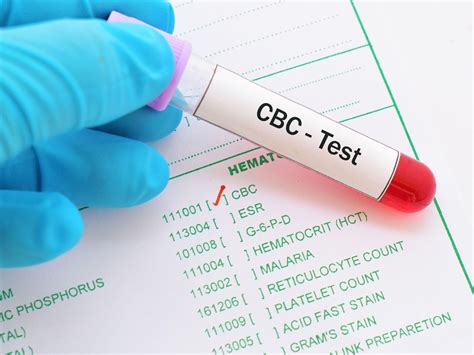
The CBC test has a wide range of applications in healthcare, from routine health check-ups to monitoring patients with chronic conditions. It is a versatile diagnostic tool that can help healthcare professionals diagnose and manage various health conditions. The test's ability to detect abnormalities in the blood makes it an indispensable asset in medical settings. By analyzing the results of a CBC test, doctors can gain a better understanding of a patient's condition, which in turn helps in making informed decisions about the appropriate course of treatment.
CBC Test and Disease Diagnosis
The CBC test plays a critical role in disease diagnosis, helping healthcare professionals to identify conditions such as anemia, infections, and blood clotting disorders. The test's ability to detect abnormalities in the blood makes it a valuable tool in medical diagnostics. For example, a CBC test can help diagnose conditions such as leukemia, a type of blood cancer that affects the bone marrow and the white blood cells. It can also be used to monitor patients with chronic conditions, such as HIV/AIDS, to assess the effectiveness of treatment and make adjustments as necessary.CBC Test and Health Check-Ups
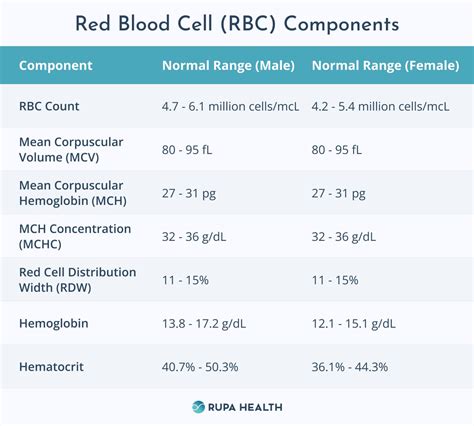
The CBC test is also an essential part of routine health check-ups, helping healthcare professionals to assess overall health and detect potential health issues early. The test's ability to detect abnormalities in the blood makes it a valuable tool in preventive medicine. By analyzing the results of a CBC test, doctors can identify individuals who are at risk of developing certain health conditions, such as anemia or blood clotting disorders. This information can be used to develop personalized prevention and treatment plans, helping to improve health outcomes and reduce the risk of complications.
CBC Test and Patient Monitoring
The CBC test is also used to monitor patients with chronic conditions, such as leukemia or HIV/AIDS. The test helps healthcare professionals to assess the effectiveness of treatment and make adjustments as necessary. By analyzing the results of a CBC test, doctors can gain a better understanding of a patient's condition, which in turn helps in making informed decisions about the appropriate course of treatment. The test's ability to detect abnormalities in the blood makes it an indispensable asset in patient monitoring, helping to improve health outcomes and reduce the risk of complications.Conclusion and Future Directions

In conclusion, the CBC test is a fundamental diagnostic tool used in medical settings to assess various components of the blood. The test's ability to detect abnormalities in the blood makes it a valuable tool in disease diagnosis, health check-ups, and patient monitoring. As medical technology continues to evolve, the CBC test is likely to play an increasingly important role in healthcare, helping healthcare professionals to diagnose and manage various health conditions. Further research is needed to explore the potential applications of the CBC test and to develop new diagnostic tools that can help improve health outcomes.
Final Thoughts
The CBC test is a powerful diagnostic tool that has revolutionized the field of medicine. Its ability to detect abnormalities in the blood has made it an indispensable asset in medical settings. As we look to the future, it is clear that the CBC test will continue to play a critical role in healthcare, helping healthcare professionals to diagnose and manage various health conditions. By understanding the components of the CBC test and its applications in healthcare, individuals can take a more proactive approach to their health, working with their healthcare providers to prevent, diagnose, and treat health conditions.What is a CBC test?
+A CBC test, or complete blood count test, is a diagnostic tool used to assess various components of the blood, including red blood cells, white blood cells, platelets, and hemoglobin.
What does a CBC test measure?
+A CBC test measures several key components of the blood, including red blood cell count, white blood cell count, platelet count, and hemoglobin level.
What are the applications of a CBC test in healthcare?
+The CBC test has a wide range of applications in healthcare, from routine health check-ups to monitoring patients with chronic conditions. It can help diagnose conditions such as anemia, infections, and blood clotting disorders.
We invite you to share your thoughts and experiences with the CBC test in the comments below. If you have any questions or concerns about the test, please do not hesitate to ask. Additionally, if you found this article informative and helpful, please consider sharing it with others who may benefit from this information. By working together, we can promote better health outcomes and improve our understanding of the CBC test and its applications in healthcare.
